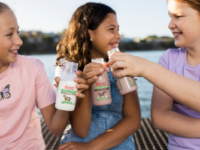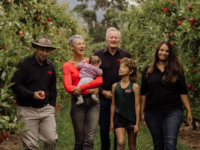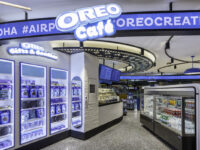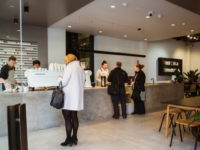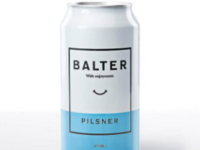 From a finance degree to brewing beers, passion has propelled Ze’ev Meltzer to pursue an altogether different path.
From a finance degree to brewing beers, passion has propelled Ze’ev Meltzer to pursue an altogether different path.
The Urban Alley Brewery founder talked to Inside FMCG about embarking on a career in the liquor industry and why he decided to help the environment through the brewery’s eco-friendly advocacies.
“I spent a couple years working in the finance sector, which was fantastic for me and taught me a lot, but [it] wasn’t something I was passionate about. I would often come home from work at 8:00pm and brew until the early hours of the morning. After a couple years I decided that I had to take the plunge and follow my passion, that’s where the Urban Alley story begins!,” shared Meltzer.
An edible six pack ring
So what makes Urban Alley Brewery different from every other craft beer company? Well for a start, the brewery is an advocate for saving the planet and has several sustainable programs under its belt. The E6PR edible six pack ring being one of their weird but wonderful quirks.
“We came across E6PR on social media and thought it was an amazing idea. We contacted them (US beer company, Saltwater Brewery) immediately and were really excited to be the first (of hopefully many) to bring them to Australia,” said Meltzer.
Six pack rings, which are usually made from plastic, are common death traps for sea turtles and other marine life. The World Wild Fund states on their website that Australians use an average of 130kg of plastics each year and up to 130,000 tonnes of plastic end up in the ocean.
So what pushed the brewery founder to make the business environmentally sustainable? Meltzer said he was always open to the idea of social responsibility while still studying at the university.
“[It] required consistent focus, creativity and resources to try and reinvent the wheel and make sure we think through every decision we make to ensure it is the most environmentally and socially responsible option,” said Meltzer.
Opening a 25 hectare-litre brewery
Urban Alley is set to open its own 25 hectare-litre brewhouse in Melbourne. The liquor company boss said it took him several years to see the fruits of his labour. The new brewery aims to produce two million litres of beer per year.
Urban Alley Brewery is also partnering with surrounding farms through the Love Thy Neighbour program to reuse the brewery’s wastewater. Meltzer said breweries traditionally dumps waste water down the drain which requires special sewerage treatment. That can be quite costly both financially and environmentally.
“We’re currently in the process of testing the effects of high protein alkaline brewery wastewater on a couple different fruit and vegetable varieties,” he shared.
Partnering with Liquorland
Urban Alley has partnered with Wesfarmer’s liquor store Liquorland to sell its Urban Ale beer. Liquorland carries major alcohol brands and other craft beers making it tough to attract consumers to any one brand.
“We’re very fortunate to have the support of Liquorland on our new venture. Liquorland prioritises supporting small breweries to make craft beer more accessible. We’re so glad to have them on board for the journey!” said Meltzer.
Urban Alley Brewery is also set to release four new SKU’s into the market in September. But what makes their new craft beers different? The Urban Lager is a Classic Munich Helles made with only one malt and one hop. It has an incredibly unique character while being subtle and super sessionable. While the new Urban Dark is a classic English Nut Brown Ale, which Meltzer dubs a breakfast beer. He said the combination of English malt and yeast create a rich malty creaminess thus making it perfect for brekkie.
“The Urban APA is a true American Pale Ale, ballsy, hoppy and aromatic with a beautiful malty sweetness that balances it all out. It’s also brewed by, Shaya [Rubinstein], our very own American head brewer,” shared Meltzer.
Trial and error
“We’ve been really fortunate to build some amazing relationships with people that have been in the industry for much longer than we have, and in the tough times having friends to rely on goes a really long way in solving most issues,” Meltzer told Inside FMCG.
One of the most overwhelming aspects of putting up a new company is knowing where to get the funding, apart from the roadblocks and trial and errors encountered along the way.
“Whether you build a physical brewery or decide to contract/gypsy brew will define how much start-up capital you may need. If I had to ball park it, I’d say setting up a medium sized production brewery (25HL), excluding the tasting room – might cost A$750k – A$1.5m,” explained Meltzer.
“This will vary greatly depending on your brewhouse manufacturer the state of your desired site and how many tanks you put in. Once you build your brewery you need to fund the (very slow) cash flow cycle and also expect to operate at a loss while you build your distribution network. Long story short … it’s not cheap!”
It has certainly been an interesting journey for Meltzer, building a strong line of craft beers and opening his own brewhouse, all the while making sure the business is kind to the environment.







